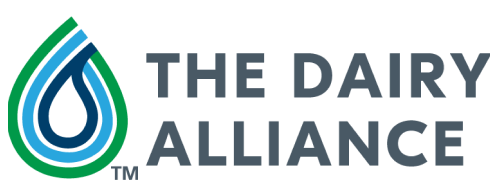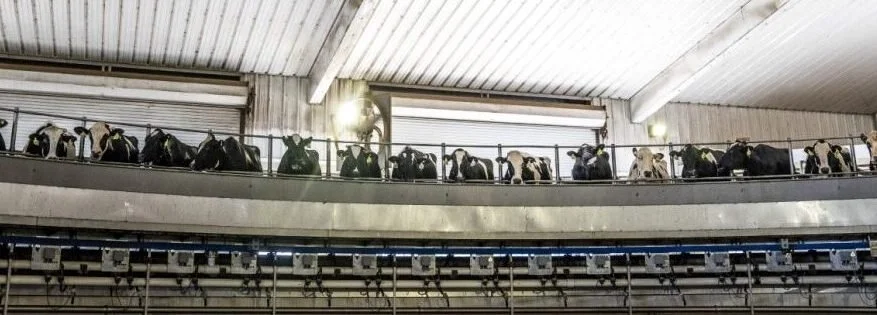The Dairy Industry Keeps Climate In Mind
The dairy industry and dairy farmers know it is important to do what they can to preserve their resources and protect the land. Below we highlight some of the practices dairy farmers in the Southeast region have implemented to keep the climate in mind and protect the Earth.
Dairy Industry Farms
Ramsey Dairy Farm
Ramsey Dairy in Fairview, North Carolina, practices no-till farming to grow corn, small grains, and grass that is included in the feed for their cows. Keeping an actively growing crop on the land has improved the overall soil health and led to less erosion.
Windcrest Holsteins
Windcrest Holsteins in Timberville, Virginia, keeps their cows comfortable with sand bedding in the barns. When the barns are cleaned with recycled water to remove manure, some of the sand also gets removed with the flow of the water. To recollect the sand, Windcrest uses a machine to separate the sand from the collected manure. The sand is left to dry in the sun, which helps reduce bacteria. When the sand is properly dried, it is put back into the stalls in the barns. Using this method, Windcrest recaptures about 90% of the sand on the farm, which keeps the cows healthy and comfortable and keeps the sand out of the manure that’s applied to the cropland.
Cowherd Dairy
Dairy production creates a closed-loop model of circularity manure from dairy cows. This manure can be converted into fertilizer that can be applied to crop fields to grow more feed for dairy cows. Cowherd Dairy in Campbellsville, Kentucky, follows a detailed nutrient management plan to provide nutrients to their crops at specific times and rates to meet the crops' nutrient requirements. This converts the waste into a nutrient-rich mixture used as a natural fertilizer for crops. The farm has recently converted to a drag hose system, which reduces nitrogen loss and greenhouse gas emissions. This sustainable approach benefits the planet and turns waste into a viable resource.
Leatherbrook Holsteins
At Leatherbrook Holsteins in Americus, Georgia, recycled water is used to clean the sand and manure from the barn. The sand is separated and cleaned to use again as bedding to keep the cows comfortable in a method similar to that described above at Windcrest Holsteins. However, the remaining water then goes into a methane digester to capture the methane gas to produce renewable natural gas. This can control the odor surrounding the farm and reduce excess methane in the atmosphere by converting it to fuel that can be a usable resource for heating or transportation.








